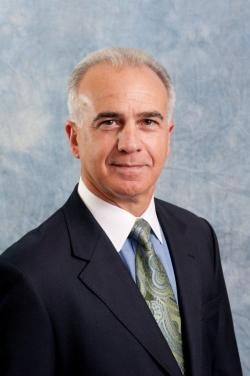Says Bill Goes Too Far In Efforts To Reregulate Airline Pricing And Service, Misses Historic Opportunity To Improve Air Travel For Customers, Rightfully Rejects Tax Hikes On Travel
Airlines for America (A4A) says there are multiple problems with legislation introduced by Sens. John Thune (R-SD) and Bill Nelson (D-FL) to reauthorize the FAA, but does see some positives in the bill.

In a statement, A4A says the bill goes too far in its attempt to reregulate airlines. The Senate bill seeks to reregulate airline industry pricing and service provisions, which were successfully deregulated in 1978. Consumers have benefited from airline deregulation as flying is more affordable and accessible today than it ever has been, and A4A is projecting a record number of people will fly this spring. Regulations proposed in the Senate bill under the cloak of consumer protection have the potential to drive up the cost of air travel for consumers and potentially harm service to small- and medium-sized communities.
“We urge the Senate Commerce Committee to reconsider its approach and instead support provisions that will help provide a rational tax and regulatory framework that will benefit all stakeholders of the aviation system, including the 2 million people who fly on U.S. airlines every day,” said A4A President and CEO Nicholas E. Calio (pictured). “It’s disconcerting at a time when other countries rightly view their airlines as national assets and drivers of the economy and jobs that we are taking steps backward toward reregulation, which will make it more difficult for consumers to afford to fly.”
Calio noted however, that if the Senate’s goal was to improve flying, it would move forward with air traffic control reform.
“The Senate has a historic opportunity to reclaim the United States’ position as a leader in aviation technology and innovation by delivering the transformational ATC reform that airline customers deserve,” Calio said, noting that according to the FAA delays and lost productivity cost our economy $30 billion annually.
Multiple government reports and investigations have identified problems with the current air traffic control system, including failure to advance NextGen technology and meet air traffic controller hiring requirements. Addressing the funding and governance challenges the FAA faces with a separate not-for-profit entity would create stability in long-term planning and hiring, and would aid in continuous technology upgrades and ensure safety remains the top priority within the FAA’s oversight.
"Travelers, shippers and the U.S. economy have everything to gain from modernizing our nation’s antiquated ATC system,” said Calio. “Instead of seizing a historic opportunity to make flying better for the constituents they represent, this legislation embraces a status quo that has not worked, is not working, and is not capable of supporting such a critical driver of our economy in the future.”
The Senate bill, like its House counterpart, rightly rejects calls from the airport community to more than double the Passenger Facility Charge (PFC), also known as the airport tax. On behalf of the flying public who pay the PFC every time they fly, airlines oppose increasing the PFC, noting that collections reached $3 billion in 2015, the highest level in the history of the PFC program. According to FAA reports, U.S. airports brought in over $24 billion in 2013 alone, a 52 percent per-passenger increase from 2000, including record highs of $10 billion from airline rents and fees and $8.2 billion from non-airline revenues such as retail and food and beverage. Additionally, FAA reports show U.S. airports have over $11.4 billion of unrestricted cash and investments on hand and an uncommitted balance of nearly $6 billion in the Airport and Airway Trust Fund, which is the highest level since 2001.
“Airlines support infrastructure, and have invested more than $70 billion in airport projects over the last eight years. There is no lack of resources for airport improvements, and no need to further burden the traveling public with an even higher airport tax,” Calio said. “We commend Chairman Thune for his recognition that there is simply no justification for an increase in the airport tax, and we urge members of the committee to follow his lead in holding the line against unnecessary tax hikes.”
(Source: A4A news release)
 Aero-News: Quote of the Day (12.11.25)
Aero-News: Quote of the Day (12.11.25) ANN's Daily Aero-Term (12.11.25): Nonradar Arrival
ANN's Daily Aero-Term (12.11.25): Nonradar Arrival Classic Aero-TV: David Uhl and the Lofty Art of Aircraft Portraiture
Classic Aero-TV: David Uhl and the Lofty Art of Aircraft Portraiture Airborne-NextGen 12.09.25: Amazon Crash, China Rocket Accident, UAV Black Hawk
Airborne-NextGen 12.09.25: Amazon Crash, China Rocket Accident, UAV Black Hawk Airborne 12.05.25: Thunderbird Ejects, Lost Air india 737, Dynon Update
Airborne 12.05.25: Thunderbird Ejects, Lost Air india 737, Dynon Update



